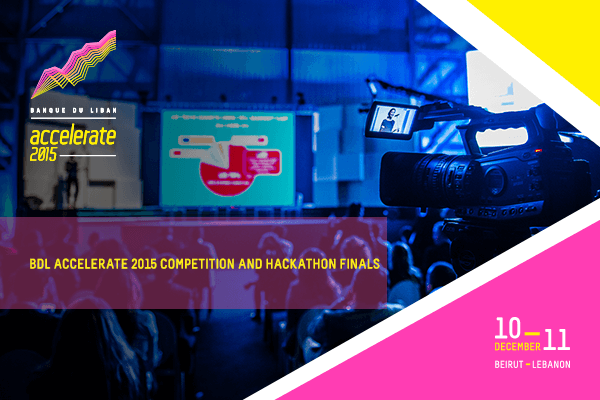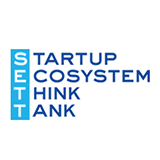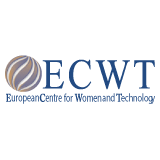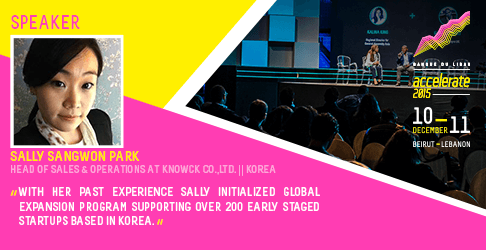
The 2nd day of BDL Accelerate 2015 kicked off with a panel discussion on Lebanese VCs supporting startups on Stage A and a panel discussion on Lebanese Seeds & Investments on stage B. 4100 have attended today, 2900 of which are returning attendees from yesterday, and there have been 1200 new registrations.
Below are some highlights from all the keynotes & panel discussions on both stages:
Stage A:
Panel Discussion: Supporting Startups
Moderator: Nicolas Sehnaou
Speakers: Marwan Kheireddine, Mohamed Rabah, Maroun Chammas, Robert Fadel
The panel discussed the current state of the Lebanese startup ecosystem that have moved from one that did not exist some years ago to quite a sophisticated one. They also discussed the challenges the ecosystem faces with slow internet connection, poor infrastructure, and the role of the government in the ecosystem. All speakers were rather confident on the current resources available to entrepreneurs and the structure of the Lebanese ecosystem calling for entrepreneurs to go create and innovate since the structure and support is there. They also voiced the need for coding in schools to encourage the culture shift. The overall feel was that we are to expect success stories in the near future and that we will be witnessing the Lebanese startup ecosystem take strides.
Panel Discussion: How Entrepreneurial Family Business Give Back
Moderator: Michael Lints
Speakers: Nicolas Boukhater, Youssef Abillama, Nay Ghorayeb, and George Abouadel
After individual introducing themselves, the panel discussed their role in the entrepreneurial ecosystem and how both they and entrepreneurs may benefit. As 3rd or 4th generation family businesses they all agreed that they cannot take the same risks that entrepreneurs do and they could learn to at least take more risks. They discussed ways on how they are approaching investing in startups for instance, Youssef Abillama the CEO of MMG stated that they have an internal corporate VC who looks for startups that they can strategically invest in especially since their plan is to invest in 10 to 15 startups in the next few years. All speakers agreed that they look for startups with similar focuses as their own business and that would complement or benefit them.
Keynote: Startup Success – An Unexpected Journey
Speaker: Mark Haidar
Mark gave a highly inspiring and entertaining 15 minute keynote in which he spoke about his incredible journey as a kid in a refugee camp wanting to earn some money to pay for his tuition, to arriving in New York with just the clothes on his back and $200 given to him by his dad, to him becoming the successful Founder & CEO of Vinli. The audience were in awe as Mark told them to always dream big and never give up.
Keynote: Full Circle
Speaker: Mansour Salameh
Mansour Salameh talked about the journey his career took him on from being an entrepreneur to an angel vc to an investor and back to an entrepreneur again. He added that you don’t have to be an entrepreneur to have an impact on the startup ecosystem. He gave tips to investors to understand what they are investing in and to invest in a team who know more than they do and are capable of solving problems.
Hybrid: Emerging Opportunities
Moderator: Paul Papadimitriou
Speakers: Mbawana Ailliy, Samir Abdelkrim
Both speakers discussed the emerging opportunities in African and shared their experiences. Both speakers seemed to agree that although the ecosystem in Africa is still in its infancy, its growing exponentially rather fast and that we should expect to hear many more success stories from there.
Hybrid: Bridges to Asia
Moderator: Paul Papadimitriou
Speakers: Joyce Kim, Gen Kanai, and Sally Park.
The speakers started by individually sharing their experience and introducing their ecosystems providing valuable insights on connecting with the Asian ecosystems. Through understanding their respective markets in terms of consumer, culture, tech-savviness, etc Lebanese should consider exporting their products and services to those markets.
Fireside: 15mins with TechCrunch
15 minute discussion with Mike Butcher
As expected, Mike Butcher was highly informative and opinionated on stage. In reference to banks, Mike thinks that banks should leave the game to those specialized in it. Leave it to VCs, to angels, to entrepreneurs. He told entrepreneurs to aim for larger markets by going regionally rather than just think locally. He also advised Lebanese to compare themselves to other emerging ecosystems such as Cairo instead of Silicon Valley who already have a 50 year lead. Mike made a point that ecosystems should be lead by entrepreneurs and everything in the ecosystem should be directed to them. He then concluded by briefly informing the audience about TechFugees, an initiative he started that has been recently bringing the power of technology to the refugee crisis.
Hybrid: Building Startup Ecosystems
Moderator: Joe Haslam
Speakers: Liz Fleming, Andra Larin, Natalia Kiskova, Josephine Goube
Liz Fleming started with a presentation on building startup ecosystems discussing how entrepreneurship is a tiny market with large economic impact and demonstrated that if you increase the volume of activity, you will see much larger markets. She advised entrepreneurs to go with their gut feeling, exemplified how fear could become opportunity and reiterated that entrepreneurs are the core of the ecosystem and all activities should be targeted towards them. Andra then introduced Estonia showing how Estonia has changed so much from a country who aimed to getting computer labs and internet to all schools to a country that has wifi connectivity everywhere. The startup ecosystem is strongly supported and is a result of having everything aligned, including regulations, and that a forward thinking government and tech-savvy population have created in advanced e-country. Finally, Natalia Kiskova introduced Slovakia highlighting how small the country is in terms of startup ecosystem where it only have 5 real startups at the moment and it’s only been 1 year since the 1st law was passed by government to help startups. They have plenty of money to invest into startups but no where to really invest it. She added that unlike Slovakians, Lebanese people constantly sell Lebanon to everyone and the ecosystem is highly accelerating.
Hybrid: Computer Video & Gaming
Speakers: Ville Miettennen, Moaffak Ahmed,
Moderator: Paul Bragiel
The speakers discussed the emergence of gaming and the development of the ecosystem in Finland. The emphasized on the importance of collaborating and sharing. Finland ecosystem started by 5 to 10 people who made it happen. They advised the audience not to wait for the government to provide a platform for them but for them to do it themselves and to overshare. Share. Share. Share.
Announcement: Berytech Fund 2
Paul Chucrallah made an announcement that of transactions by Berytech Fund 2. They will be investing up $2million in et3arraf, up to $2 million in conjunction with BLC in Cinemoz, up to $2 million in Ounousa, about $600k in Atbaki, $300k in Yalla Play, and $500k in conjunction with BLC in Updated.
Keynote: Alternative Financing & Secondary Markets
Speaker: Sanjay Sabnani
Sanjay told the entrepreneurs that if they can’t convince people they know in their idea, then there’s no point talking to strangers. He acknowledged that there’s so much money available in Lebanon to be invested and warned against taking the wrong money – wrong money is absolutely worse than no money. Startups in Lebanon should look into the Lebanese diaspora and create a virtual crowdfunding from them.
Keynote: Founding Startup Ecosystems
Speaker: Loic Le Meur
Loic Le Meur started off informing entrepreneurs that no one will steal a shitty idea. He encourages everyone to share their idea with people. Start sharing your idea, he said, people will have valuable input for you. He created an email list that is more of like a journal which he shares with people his fears and everything else and gets a lot of valuable feedback from them. “The best people in the world don’t know about you now, but if you start sharing your fears with them, they can help you a lot”. If people are interested in the idea, then marketing won’t be needed and word of mouth will be enough. Le Web started with a community of bloggers. He puts everything out there and it started growing and growing. His passion is to meet new people and invest in them
Keynote: The Microword Revolution
Speaker: Leila Janah
Sama Group has 2 programs. The projects are broken down into microwork and give them to people in our offices. Impact sourcing models can help people with low income do entry level work. They provide a lot of data behind the algorithms. This helps them move people out of poverty and develop their talents. They have been recently asked by Morocco to launch there. This would be very useful and helpful given the refugee problems in the area. They have clients like trip advisor and getty images. Sama moved 30,000 people from 2 dollar per day income to 8 dollar per day income. Connectivity is still the biggest issue but they are trying to ride this wave by getting some help from people who can afford it. Additionally, Sama school offers free training to prepare people to work in refugee camps and such areas.
Stage B:
Panel Discussion: Seed, SME, Investments
Moderator: Yasser Akkaoui
Speakers: Khater Abi Habib, Nicolas Rouhana, Fouad Rahme
The panel addressed the issues facing the entrepreneurial ecosystem in Lebanon. Even with these issues such as electricity and internert, the panelist still believe in lebanon and its potential. Fouad Rahmeh shared the challenges that they faced before starting investing in startups, they had to learn about kpi, analytics and so on. However, he still believes in Lebanon and insisited that we will succeed in that. With no president and no infrastructure, this is what will push everyone towards entrepreneursih according to Fouad. Where we need to improve, is to start encouraging youth at the university level. For Nicolas Rahmeh, coming from Berytech background they wanted to help entrepreneurs more than maximizing their returns.
Keynote: Designing for a connected world
Speaker: Dan Young
When designing a connected device, design for the user experience before thinking of features and design a specific device that solves a specific problem. Most importantly systems need to look consistent across all devices to create emotion and feeling for users. In the future, connected technologies will be more personalized: one device, many users, but still personal
Panel Discussion: Accelerators
Speakers: Theo Khoury, Sami Abi Saab, Nicholas Sehnaoui
Moderator: Alex Barrera
The panel discussed the need for accelerators, what they do and why are they needed in Lebanon. Sami Abi Saab from Speed@BDD shared his view from his perspective, what they do and what need they fill in the Lebanese ecosystem. Speed@BDD focuses more importantly on the team, their commitment and if they own their platform. Nicholas Sehnaoui believes entrepreneurs are heroes just for taking the risk. Theo Khoury is pushing entrepreneurs to think bigger than the country, the region and consider going global. As a entrepreneurs you should be able to take feedback and improve your product. This is what matters. Nicolas Sehnaoui is very optimistic about the quality of Lebanese entrepreneurs. At UK LEB Tech Hub, they are having trouble narrowing down applicants. The idea is important but also the market and the timing are crucial. Once you find your idea and believe in it, take the risk and commit.
Keynote: Artificial Intelligence
Speaker: Rand Hindi
Randi Hindi talked about artificial intelligence gives your connected devices the ability to predict what you want to minimize your interaction. In the near future, technology will still take care of everything, technology will still take care of everything but we will feel unplugged like 20 years ago. To make technology disappear, you need to learn people’s habits to predict their actions.
Panel Discusion: Bridging Ecosystems
Speaker: Jean Nehme, Imad Riachi, Mohamed Rafei
Mohammed Rafei if you want to start in a different country, find a small common community and start there. Imad Riachi suggested to take mentors from different country to get a wide range of insights. Once you get a good launchpad in a certain country, it is easier to brand out to other countries. The startup was my vehicle to make an impact in my community to solve a problem. Jean Nehme believes that it doesn’t matter where you are, you can start there as long as you have the perseverance and motivation.
Keynote: How Big Data is Redefining Marketing
Speaker: Zahi Karam
The problem with marketing today is the divide between the email marketer and the data he needs. Bluecore has built a system to track customer behavior with just one live JAVA script which is easier for the marketer. If you are a good marketer you will want to make every step of the customer’s journey personalized. Emails that respond to customers’ actions on the website are an excellent tool to marketers.
Hybrid: Walking Giants
Speakers: Hadi Farnoud, Loulou Bou Khazen, Neda Al-Dihany, Cigdem Toraman
Moderator: Tara Nehme
Loulou stated Nabbesh is trying to make a trustworthy connection between freelancers and employers. Hadi Farnoud informed that Iran is the largest untapped market and has huge potential to go global. The biggest challenge in building a startup is finding the right team as opposed to outsourcing. In Iran they are teaching kids to code because the developer problem is worldwide, not only in the MENA. Nede Al-Dihany said that the problem in MENA isn’t lack of talents but lack of connections between us. a problem in the region is that there are few developers.To add to that Cigdem Toraman we need to connect and bridge ecosystems in the region. We need more events like BDL Accelerate to do so.
That’s it for BDL Accelerate 2015 panels & keynotes.
Stay tuned for the results of the Wearables Hackathon, the Web & Mobile Hackathon, the Idea Stage Startup Competition, and the Early Stage Startup Competition.

































